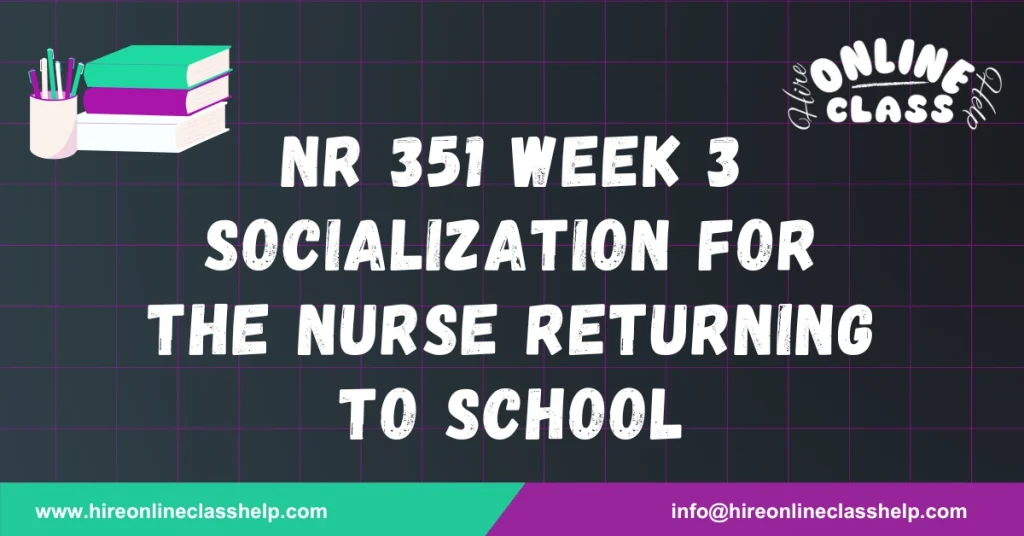






Name
Chamberlain University
NR-351: Transitions in Professional Nursing
Prof. Name
Date
As a nurse entering an RN-BSN educational program, you are embarking on a journey of socialization or transformation. This process involves adapting to new roles and expectations as you learn more about the functions and responsibilities of a BSN-prepared nurse. A key resource during this transition is the network of nurses with BSN and higher degrees. These individuals can offer valuable guidance, mentorship, and insights based on their own experiences. Learning from their expertise can significantly enhance your socialization process and help you navigate challenges more effectively.
Factors such as openness to learning and a willingness to embrace new ideas are essential for a successful socialization experience as a BSN student. Every nurse you work with can offer a unique perspective, adding depth to your understanding of nursing practice. Additionally, the ability to critically evaluate various approaches will be crucial as you encounter complex assignments like research papers. Being receptive to feedback and maintaining an open line of communication with your peers and mentors will foster an environment conducive to growth and learning.
In preparation for the next step in my nursing career, I am confident that I will rely on the experience and support of other nurses throughout this process. This is similar to how I seek advice from seasoned nurses while working on the floor caring for patients. The key to success is recognizing that learning is a lifelong process, and as nurses, we are never too old to learn or too young to contribute valuable insights. Keeping an open mind and embracing diverse approaches to nursing care are critical in this regard.
Hood (2014) describes socialization into the nursing profession as the process of preparing individuals for a particular societal role (p. 10). This concept applies not only to new nurses but also to those returning to school for advanced degrees. As I transition into this new phase of my education, I anticipate discovering new roles and comfort zones within my nursing practice. It is important to acknowledge that each of my colleagues brings their own experiences and outlook to the table, enriching my learning experience.
One of the most important aspects of my journey is remaining open and ready to learn from anyone. This openness ensures that I can benefit from the diverse perspectives and insights offered by my colleagues, mentors, and educators. As I progress through the RN-BSN program, I expect that my research and interview skills will become more refined, helping me to communicate more effectively and engage in meaningful professional discussions. By keeping the lines of communication open and fostering collaborative relationships, I can ensure that my socialization process is both productive and transformative.
Hood, L. J. (2014). Leddy & Pepper’s conceptual bases of professional nursing (8th ed.). Philadelphia: Lippincott Williams & Wilkins.
| Heading | Content |
|---|---|
| Socialization for the Nurse Returning to School | Entering an RN-BSN program involves a socialization process where nurses learn new roles. Nurses with BSN or higher degrees can serve as resources, providing guidance and support during this transformation. Openness to learning is key. |
| Utilizing Resources for Effective Socialization | Relying on experienced nurses is essential for learning, just as it is in clinical practice. Learning is a lifelong process, and diverse perspectives enhance knowledge. Hood’s concept of socialization applies to nurses pursuing higher education. |
| Ensuring Effectiveness in the Socialization Process | Maintaining openness and communication with peers and mentors ensures that socialization is effective. The process leads to improved skills and greater understanding of professional nursing roles. |